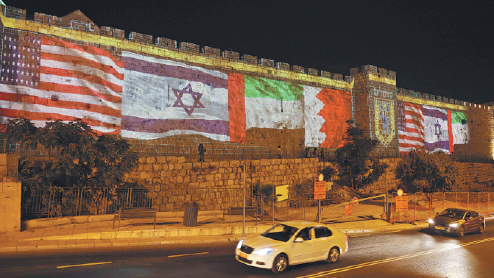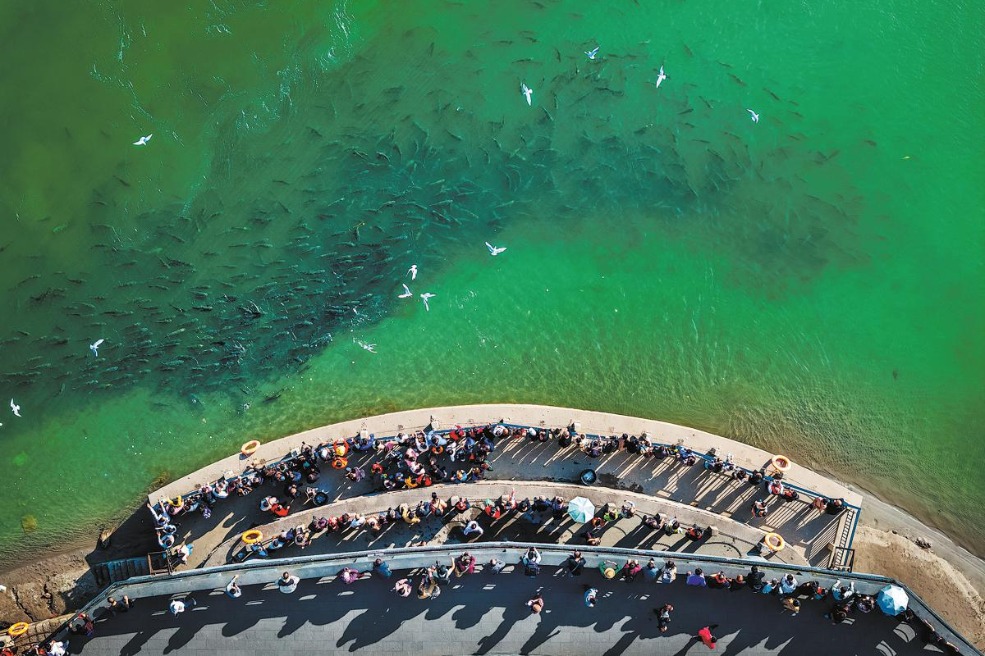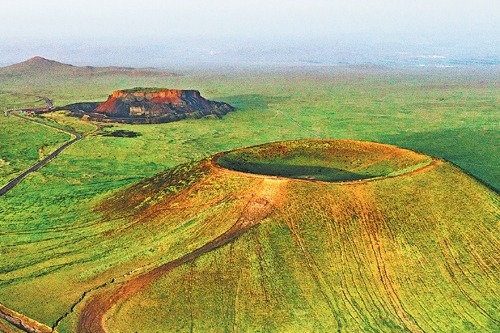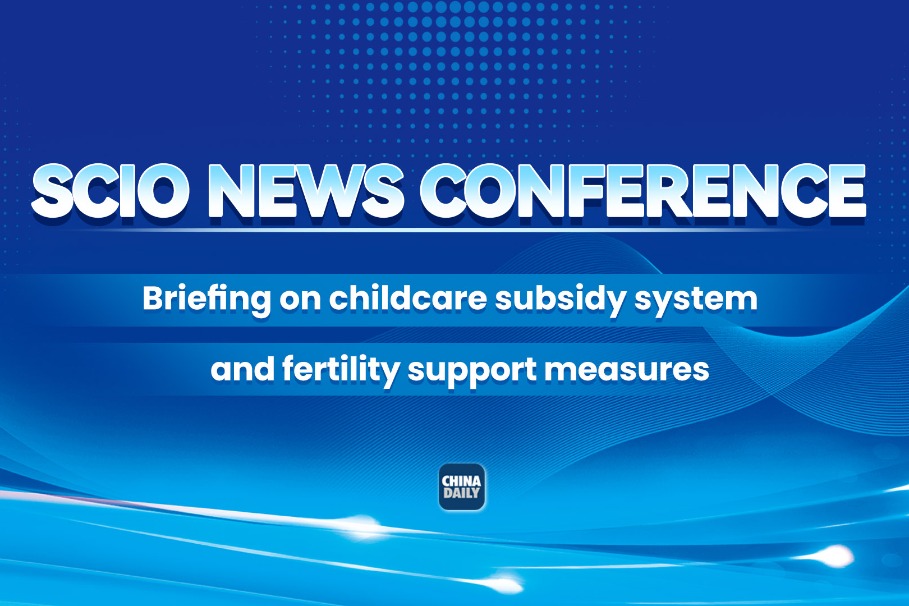Israel seals accords with UAE, Bahrain

WASHINGTON-Israel on Tuesday signed historic diplomatic pacts with two Gulf Arab states at a White House ceremony that US President Donald Trump declared will mark the "dawn of a new Middle East", casting himself as an international peacemaker at the height of his reelection campaign.
The bilateral agreements formalize the normalization of Israel's already thawing relations with the United Arab Emirates and Bahrain. The two countries have never fought a war against Israel, and the unofficial relationships between Israel and the two Arab states have developed for years.
But the accords do not address the decadeslong conflict between Israelis and the Palestinians.
Hundreds of people massed on the sun-washed South Lawn to witness the signing of agreements in a festive atmosphere little marked by the coronavirus pandemic. Attendees did not practice social distancing and most guests did not wear masks.
"We're here this afternoon to change the course of history," Trump said from a balcony overlooking the South Lawn. "After decades of division and conflict, we mark the dawn of a new Middle East."
Israeli Prime Minister Benjamin Netanyahu called the day "a pivot of history" and one that "heralds a new dawn of peace".
Neither Netanyahu nor Trump mentioned the Palestinians in their remarks, but both foreign ministers of the UAE and Bahrain spoke of the importance of creating a Palestinian state.
UAE Foreign Minister Sheikh Abdullah bin Zayed al-Nahyan thanked Netanyahu for "halting the annexation" of West Bank land claimed by the Palestinians in exchange for recognition.
Netanyahu, however, has insisted Israel has only suspended its plans to annex West Bank settlements.
Bahraini Foreign Minister Abdullatif bin Rashid Al Zayani said his country would stand with the Palestinians. "Today is a truly historic occasion," he said. "A moment for hope and opportunity."
'Serious consequences'
In response, Palestine said the signing of the three-way normalization accords will not achieve peace in the Middle East.
In a statement, Palestinian President Mahmoud Abbas said that "all attempts to bypass the Palestinian people and their leadership will have serious consequences", stressing the US administration and Israeli authorities will bear the responsibility.
He called on all Arab countries to abide by the 2002 Arab Peace Initiative that stipulates the Arabs can only normalize relations with Israel after the Palestinian issue is resolved.
In the Gaza Strip, Palestinian militants fired two rockets into Israel, apparently meant to coincide with the ceremony. The Israeli military said the rockets were fired from Gaza and one was intercepted by air defenses.
Israel and the US hope the pacts can usher in a major shift in the region should other Arab nations, particularly Saudi Arabia, follow suit. Before that, Israel only had peace deals with Egypt and Jordan.
But Jon Alterman, director of the Middle East Program at the Center for Strategic and International Studies, said Tuesday's signing did bring the beginning of a new era in the region, but it is not clear that the era will be one of greater peace.
"In the near term, it may be an era of greater volatility," he said. "Less pan-Arab cooperation, combined with a US determination to lighten its footprint in the region, is likely to create different regional dynamics."
Intricate diplomacy
The ceremony followed months of intricate diplomacy headed by Jared Kushner, Trump's son-in-law and White House senior adviser, and the president's envoy for international negotiations, Avi Berkowitz.
On Aug 13, the Israel-UAE deal was announced. That was followed by the first direct commercial flight between the countries, and then the Sept 11 announcement of the Bahrain-Israel pact.
Trump is looking to boost his standing as a statesman with just seven weeks to go before election day. Until now, foreign policy has not had a major role in a campaign dominated by the coronavirus, racial issues and the economy.
"The timing of this is explained by the fact that it's designed clearly to boost a beleaguered president's chance for reelection," said Aaron David Miller, a Middle East expert at the Carnegie Endowment for International Peace.
Agencies - Xinhua


Today's Top News
- Xi's book on governance hailed for insights into 'China miracle'
- European destinations swamped by tourists
- Economy expected to maintain steady pace
- Stable, healthy Sino-US ties benefit all
- CPC plenum to focus on next five-year plan
- Talks highlight the fact that cooperation benefits both sides, confrontation harms both






























